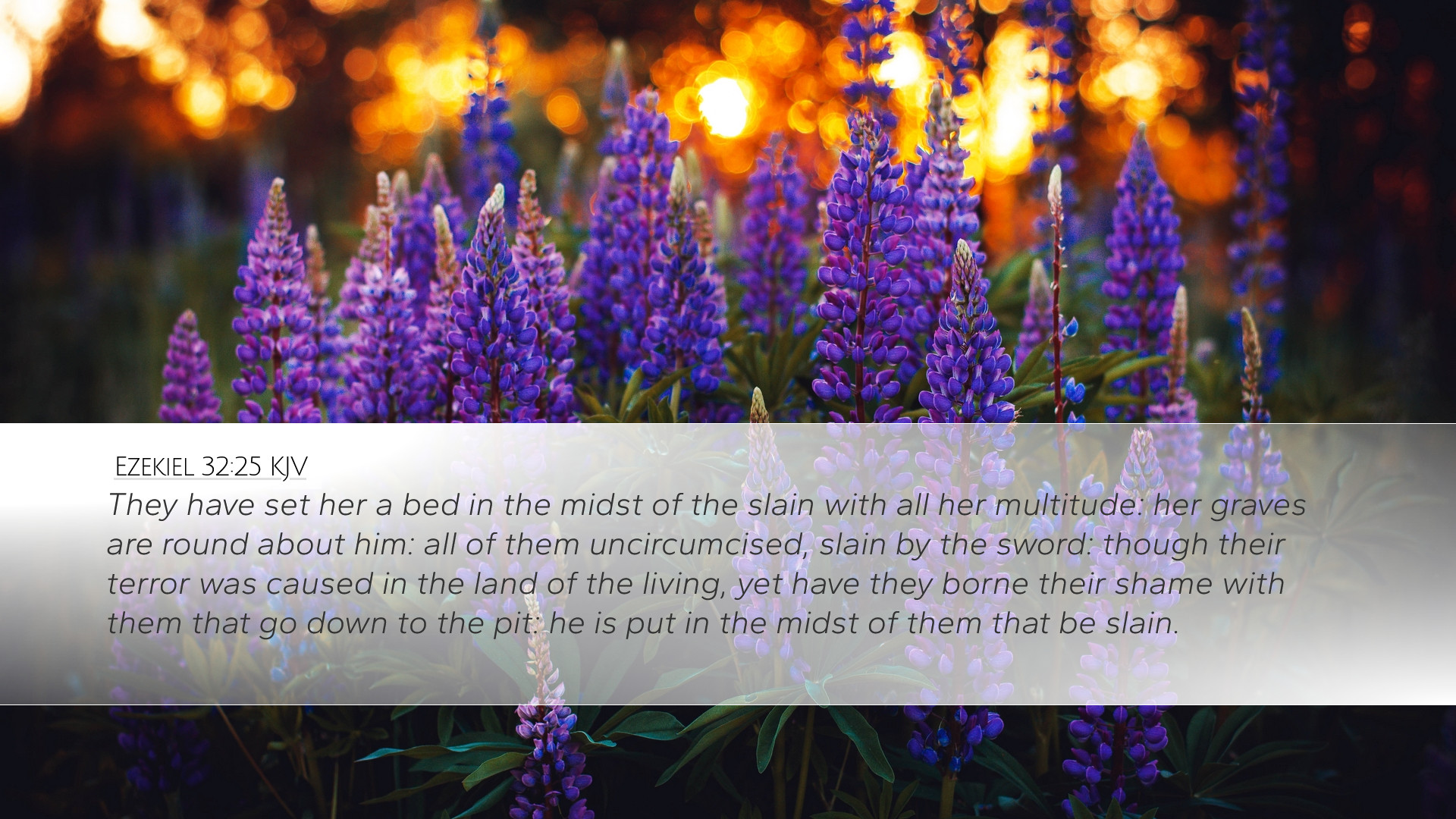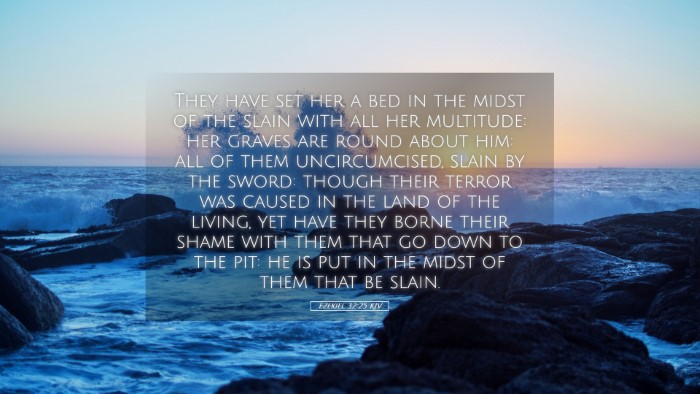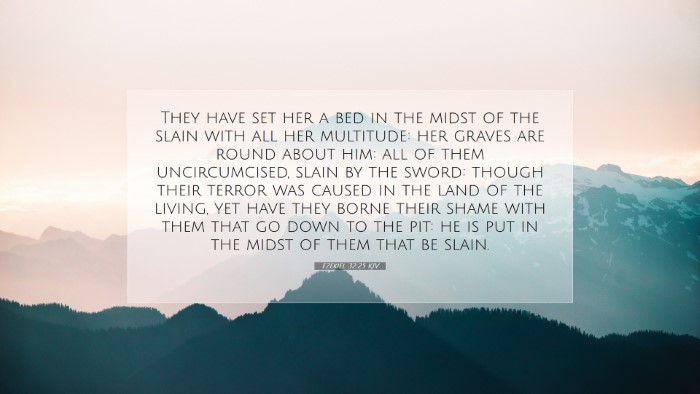Commentary on Ezekiel 32:25
Ezekiel 32:25: "They have set her a bed in the midst of the slain with all her multitude: her graves are about her: all of them uncircumcised, slain by the sword: for their might was caused to terror in the land of the living."
Contextual Background
The Book of Ezekiel is a prophetic work that speaks extensively about the themes of judgment, restoration, and the sovereignty of God. This verse is part of a larger oracle concerning Egypt, where the prophet Ezekiel depicts the impending judgment that would befall the nation. It is essential to understand how God communicates through Ezekiel to reveal the grim destiny awaiting Egypt due to its arrogance and rebellion against Him.
Historical Significance
Egypt was once a dominant world power, a source of pride for its inhabitants. However, God, through Ezekiel, proclaims the downfall of this mighty nation. The imagery of a “bed in the midst of the slain” serves to illustrate Egypt's fate as it would lie among the dead, having faced the consequences of its idolatry and reliance on human strength rather than faith in the Lord.
Insights from Public Domain Commentaries
Matthew Henry's Commentary: Henry explores the theme of God's judgment as a response to the arrogance of nations. He notes that Egypt, representing worldly powers relying on military might and false gods, is laid low, demonstrating that no power can stand against the sovereign will of God. The imagery of graves emphasizes the finality of judgment, and the reference to “uncircumcised” signifies a spiritual state of rejection, indicating that these slain do not belong to God’s covenant people.
Albert Barnes' Notes: Barnes elaborates on the social and spiritual implications of being 'uncircumcised.' This term associated with the slain symbolizes not only the physical death but also a disconnection from God’s covenant. The verse suggests that their might—once a cause of pride—rendered them a terror to others, highlighting the irony that strength can lead to eventual downfall when separated from divine protection. The multitude symbolizes the complete ruin of the nation, denoting a profound theological truth that divine discipline is a real reaction to human pride.
Adam Clarke's Commentary: Clarke emphasizes the moral lesson encapsulated in this passage. He insists that the divine judgment on Egypt is a stark warning to all nations that seek to elevate themselves. Clarke points out the significance of the mention of "the land of the living," urging readers to reflect on the stark contrast between life in God’s favor and the death that arises from rebellion. He clarifies that this passage is not merely about physical death, but also illustrates spiritual desolation resulting from abandoning God's laws.
Theological Implications
The implications of Ezekiel 32:25 for contemporary readers are profound. It serves as a reminder of the gravity of idolatry and the consequences of distancing oneself from God. Churches today can draw from this imagery to challenge congregations to reflect on their reliance on worldly power and adapt a posture of humility before God. The solemn warning of impending doom for nations that forsake God’s ways underlines the necessity for spiritual disciplines among the community of believers.
Applications for Pastoral and Theological Reflection
-
Call to Humility: Pastors should encourage their congregations to seek humility and repentance, recognizing the sovereignty of God over all nations and their affairs.
-
Recognition of Divine Judgment: The message of divine judgment must be integrated into preaching, not merely as a warning but as a means to invite individuals and communities back to God.
-
Spiritual Identity: The notion of being 'uncircumcised' can be used to discuss the importance of spiritual identity and belonging within the covenant community, inviting individuals to examine their relationship with God.
-
Hope in Restoration: While the verse depicts judgment, it opens the door for discussions on the themes of grace, restoration, and renewal that follow throughout Ezekiel’s prophecy.
Conclusion
Ezekiel 32:25 paints a sobering portrait of the fate awaiting those who choose to live in defiance of God’s command. The collective insights from various commentaries reinforce that while God’s judgment is severe, it beckons individuals and nations to a place of reflection, repentance, and a return to covenant faithfulness. The enduring truths found in this passage appeal to pastors, students, and scholars alike, urging them to consider the dire consequences of sin and the profound hope found in God’s eventual redemption.


